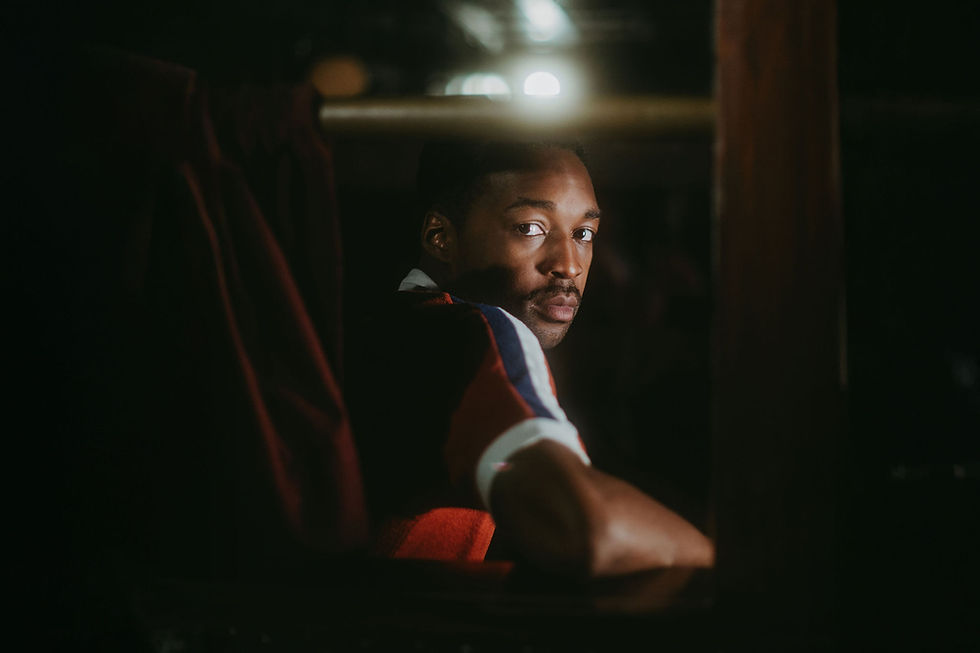ALICIA KEYS – KEYS; NICK MURPHY & THE PROGRAM – TAKE IN THE ROSES: REVIEW
- Dec 16, 2021
- 3 min read
ALICIA KEYS
Keys (Sony)
NICK MURPHY & THE PROGRAM
Take In The Roses (BMG)
Alicia Keys is simplifying matters. Her previous album was called Alicia; this one is called Keys – presumably the next one might just be A or K. With album titles like that the message is clear, and connected to her ongoing campaign on imagery and female representation in the media: some variation of back to basic, fuss-free, frank and direct, me as you find me.
She is also complicating matters. Keys, released just over a year after Alicia, is a double album of 26 songs. Or more accurately, 26 tracks over two sides, ostensibly different moods recycling and reshaping a number of songs. “Disc one” (as we might call it for those old farts still buying in a physical format), which she is calling Originals, has 14 songs principally produced by her; disc two, called Unlocked, has 12, most of them reworkings of songs from Originals, produced with Mike WiLL Made-It (known as regular Michael Williams II to his father and mother).
Originals is intended as the quieter, slower, at home with Alicia while she works some soul, classic American songbook-style, and lightly gospel into your early evening, fare. Unlocked is the more rhythmic, more active, out-on-the-town-with-Alicia while she plugs in some R&B and splashes of hip hop late in the evening, batch.
The idea of Unlocked is the arrangements are fuller and the production showier than Originals, the moves going from Nina Simone, maybe, to Kanye West, possibly. In truth the differences are not always so clear (as in the two versions of Best Of Me, which feel like the song had been merely split at some arbitrary point) though some of the expansions of Originals songs on Unlocked do find a grittier mode (most obviously Nat King Cole, which has Lil Wayne intruding prominently second time around).
Nick Murphy is also simplifying and complicating. The Melbourne-then-New York artist formerly – and maybe still more in the future – known as Chet Faker, is not just here under his own name but working with a group, The Program, exploring beyond his electronic soul/bedroom R&B standard mode.
While essentially working from an electronic base, Take In The Roses, was recorded in Texas and uses the band – Nick Kinsey, the Tims Mislock and Lappin, and Jake Falby – for accentuated guitar, more “natural” percussion and a definite sense of American roots: western American skies, southern American tones, greater American dreaming.
While Murphy finds bursts of energy and adventure in the clattering post-punkish Get It Wrong and fully embraces the expansive Americana in the final track, Old Dog, the template for the bulk of the album is set from the opening, where the title track inhabits Murphy’s favourite zone – spacious emptiness – and moves through it on slippered feet like an eerie night-time movie, or if Sigur Ros tried to play the Paris, Texas OST.
In Green Eyes, Murphy is a barroom mumbler/philosopher until he slips up into his falsetto for some pleading; for All The Things one guitar vibrates out from below, another pieces the sky; Morning Meditation is a soundscape of scrapes and wobbling lines, violin and boom-boom-tish drumming.
In their own ways, which aren’t really that far apart given shared roots in ‘80s soul, Keys and Murphy have taken risks. Or at least risks relative to their place in the world. The problem both have is not willingness to try new things, or even to go places their audiences might not want to go (though I’d question that description: we’re not talking radical moves by either here after all), but that they don’t make compelling arguments to go there with them.
Whereas Alicia had four or five tracks which pushed past the dull ones, Keys is a much more consistent effort of attractive but anonymous, and on the theoretically uptempo disc, attractive and not much different to the anonymous other disc. Take In The Roses too sustains its mood, but the energy of the final two tracks highlights how that mood had been limited in scope for too long.
It doesn’t matter whether you’re true to your past or forging a new path if the songs are just ordinary. Or let’s stop beating around the bush and call them what they are, dull.
Simply put, that’s not great.
SPOTIFY
APPLE MUSIC








Comments